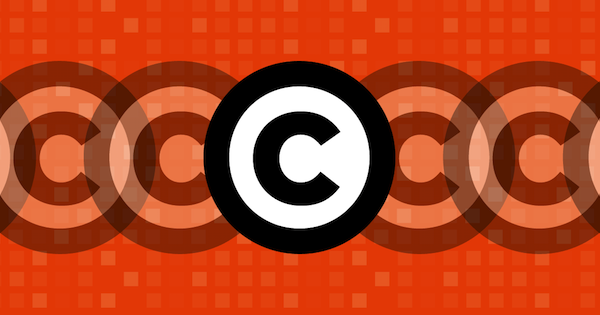Creativity & Innovation
Tell the Senate: A Filter Mandate Would Devastate Internet Creators

Not content with the raft of imperfect and terrible filters voluntarily used by Big Tech platforms, a new proposal would change the copyright regime online, mandating filters and removing speech at all levels of the internet. This would be good only for a terrible cadre of the biggest companies in the country: the monopolistic ISPs like AT&T and Comcast, Big Content like Warner and NBC-Universal, and the Big Tech companies that already have filters like Google and Facebook.
For the rest of us, for internet creators, users, and small to medium businesses, this would be a disaster. Tell your senators to stand against big corporations and with free expression and reject the Strengthening Measures to Advance Rights Technologies Copyright Act.
We, the undersigned, are internet creators. We make and share all sorts of work online: music, videos, livestreams, criticism, educational materials—everything you can imagine and some you cannot. For some of us, the Internet has allowed us to be independent artists in a way the traditional media landscape, with its homogenous gatekeepers, never would have.
We are writing to voice our concerns over the Strengthening Measures to Advance Rights Technologies Copyright Act.
This bill would cause us, and the creative ecosystem, a lot of harm. As it is, we are constantly fighting copyright enforcement mechanisms to get our legal expression online. And we fight constantly to keep it online. And we fight against major corporations for all of it.
This bill would make it extremely easy for filter mandates to be applied everywhere online, from the internet service providers that we rely on to access the web to the platforms that host our content.
That would be disastrous. It is already hard enough to navigate the world of voluntary filters used by the biggest tech companies—layering more and more filters on top of each other would restrict speech excessively.
Filters have proven terrible at telling the difference between lawful expression and infringement. Even beyond the context-heavy issue of fair use—which helps keep copyright law from violating the First Amendment—filters cannot tell the difference between wholesale legal uses.
For example, if a classical musician wants to upload a video of themselves playing a piece that is in the public domain, but someone else has already played that piece and claimed copyright in their own performance of it, a filter will prevent the new video from being uploaded. Because two people on the same instruments playing the same music can sound eerily similar.
This would apply to anyone doing commentary, remixing and transforming art, sharing memes, and so on. It would hurt people livestreaming, since they may not have control over what is in the background of their videos—as in cases where it appeared that a police department was using music to prevent video documentation from being shared online.
We often hear from members of Congress that they support small business owners and artists. We cannot have a robust creative culture if a censorship regime is built into the services small and independent creators rely on.
The pandemic has made being able to share art online even more critical to its survival. If the Strengthening Measures to Advance Rights Technologies Copyright Act had been law over the last few years, we would have been crippled in our ability to make and share our work. We urge you to put this bill aside and not propose similar ideas in the future.
Under current law, online services are granted immunity from copyright infringement liability as long as they do certain things. One of those things is that they must “accommodate” any technical measure for copyright protection that has, through industry consensus, become “standard.” This has never happened for copyright bots because no one actually engaged in the business of putting content online would agree that any of the filters that exist should be a standard. They are expensive. They don’t work. They keep lawful speech from being said and heard.
This bill would create a new way to require copyright bots. It would also require every online service to have such filters, from your service provider to your platform, creating more and more hoops for people to jump through in order to speak.
Copyright is supposed to incentivize creativity, not restrict it to just a few major companies. If you are an internet creator, sign our letter to Congress telling them about the dangers a filter mandate would pose.
We won!
Thank you to everyone who signed. We delivered this petition on April 25th with over 2,750 signatures!
